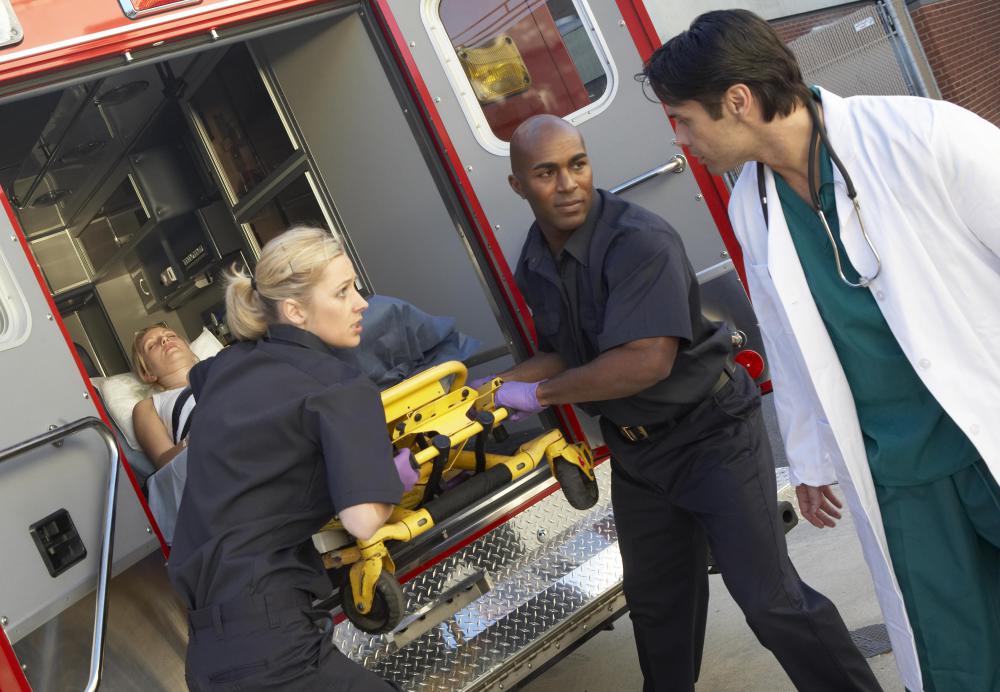At WiseGEEK, we're committed to delivering accurate, trustworthy information. Our expert-authored content is rigorously fact-checked and sourced from credible authorities. Discover how we uphold the highest standards in providing you with reliable knowledge.
What Does an Emergency Medicine Physician Do?
An emergency medicine physician provides treatment to patients with acute medical issues that require immediate intervention to save the patient's life or prevent future complications. Practitioners of this medical specialty commonly work in hospital settings like emergency rooms and intensive care units. They can also work for ambulatory clinics, urgent care clinics, and firms providing transport to patients with acute medical issues; physicians may fly on medical evacuation flights or travel with search-and-rescue teams to provide immediate aid, for example.
This medical specialty requires attending medical school and then pursuing a residency in emergency medicine. The emergency medicine physician needs a combination of skills tempered with patience and the ability to keep a cool head under fire. Part of the practice of an emergency medicine physician involves quickly assessing patients to determine immediate medical needs, triaging patients in mass trauma situations to determine which will benefit most from medical care, and providing rapid interventions to patients in acute medical distress, such as patients in anaphylactic shock.

The goal of an emergency medicine physician is to stabilize a patient so she can receive further care from other medical providers. Many consult with practitioners like orthopedic surgeons and neurologists so they can evaluate patients effectively and develop a long-term care plan as soon as they make contact with the patient. Having a plan in place can allow doctors to take measures to prepare at every stage, being proactive rather than reactive with a patient's medical care.

This work can be highly stressful. An emergency medicine physician may work late night shifts and could be employed at odd hours, depending on community needs. Emergency rooms may be high-stress environments, and physicians often have to deal with patient deaths, meeting with family members to discuss deaths or serious medical situations like comas, and providing support and assistance to nurses, paramedics, and other health care personnel. Burnout can be common among emergency medicine physicians, and many hospitals have programs in place to identify warning signs and provide rapid treatment.

Militaries have an acute need for emergency medicine physicians to manage battlefield hospitals and stabilize patients for further treatment at advanced medical facilities. Doctors interested in cutting-edge research in this field should consider military service, as it will provide access to substantial research and development in the field of emergency medicine. It can also come with high stress levels, as battlefield medicine tends to be very traumatic.
AS FEATURED ON:
AS FEATURED ON:















Discussion Comments
My name is Takeshi and I'm only 13 years old and I watch the emergency er on TV. I always see emergency medicine doctors and as I watched it and what they do, I loved it. That's how I wanted to become an emergency medicine doctor and this site shows me what I need to know and what to do.
Post your comments